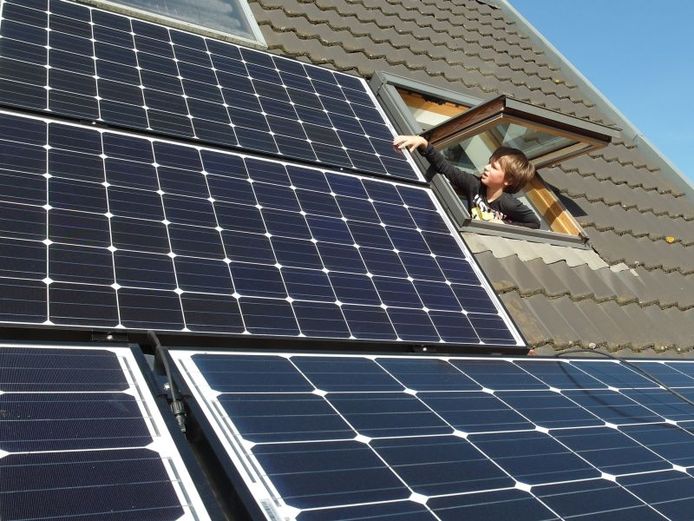The number of energy communities in Brussels is growing, allowing residents to share excess electricity with their neighbours. The Energy Sharing and Energy Communities Facilitator has received some 200 proposals to set up new projects, Bruzz reports.
Households or organisations that generate green energy and produce more electricity than they consume automatically sell energy surpluses to the grid. That energy can then be reused through energy communities. Excess electricity is then divided among members who aren't able to instal solar panels themselves. Distribution can be within the same building or different buildings and comes at an advantageous rate for both producers and consumers.
Pilot projects kicked off in 2020. The first was at a kindergarten in Ganshoren, which installed solar panels on the roof to share the generated electricity with local residents. The energy community saved €3,200 on their energy bills between January and June 2022 thanks to the initiative.
Another initiative, the Marius Renard project in Anderlecht, consists of 50 residents who share a cogeneration unit for natural gas, which generates heat as electricity and emits less CO².
A framework to foster future initiatives
These projects had previously lacked the legal framework to make viable the region, but that changed at the end of April. "Thanks to the legal framework, such projects can be widely rolled out across the region," said Benjamin Wilkin, director of the Facilitator Energy Sharing and Energy Communities. "We have already received about 200 proposals today."
However, the proposals don't mean that Brussels will suddenly have 200 energy communities; setting up such groups usually takes a year due to the process involved, according to Wilkin.
"First members have to be found, then agreements have to be made about distribution and prices and a common counter has to be installed. If there is not yet a system to generate renewable energy, it must be set up."
Related News
- Russia wants to send gas to Europe via alternative route after Nord Stream 1 blockage
- Belgium in Brief: The nuclear elephant in the room
- Solar panels on the roof of roughly one in three Flemish schools
Energy communities must also be registered as a non-profit organisation and be recognised by both the government and Brugel, the body that regulates energy in Brussels. To obtain a permit, the emphasis needs to be on social and environmental motives, rather than financial gains.
In addition, members must have autonomy. "The community should not be led by one person, but by the whole community. It also remains voluntary: participants can come and go as they please, just like you are free to change energy supplier," said Wilkin.

